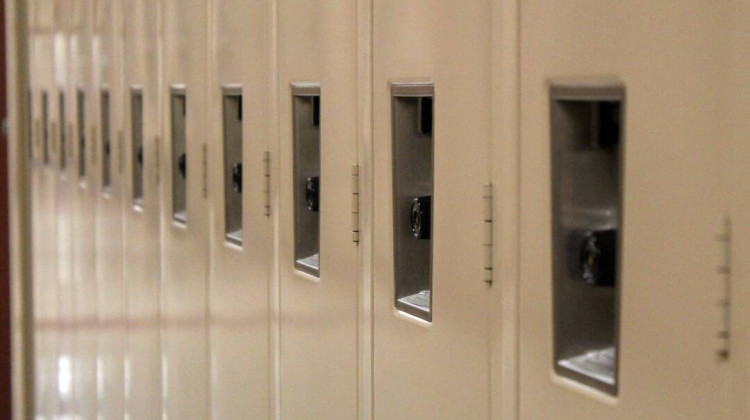
The bill's author, Rep. Bob Behning helped usher in the creation of innovation schools in 2014.
File, Lauren Chapman/IPB News.Lawmakers are considering a change to how innovation schools receive state A-F grades. Under a new bill, these schools would no longer be graded only on students’ year-to-year academic growth for the first three years.
Innovation schools are a new controversial model of public education where nonprofits can manage schools within a traditional public schools district.
Right now, all new Indiana schools can choose to receive a state grade based solely on academic growth data for its first three years. Schools established longer than three years are graded on both student growth and whether students pass or fail state tests.
Supporters of this grading system say it gives schools time to adjust. Critics say using growth as the only indicator of school success is misleading.
The bill’s author and house education committee chairman Rep. Bob Behning supported the passage of a state law that created innovation schools in 2014. Now, he says the current system of grading schools is not transparent.
“I think has happened over time is we have a situation where you're using growth-only and it is not really transparent to parents as they make decisions as to what is in the best interest of students,” Behning says. “I think growth-only distorts the performance of the school.”
During the house education committee meeting Wednesday, he called out failing schools that appear to receive impressive grades because of growth-only measurement.
The solution Behning’s bill suggests would mean innovation schools would receive a “null” grade for its first three years, and Indiana Department of Education would list the schools' growth and performance scores on its website.
Innovation schools are sometimes struggling schools that are “restarted” under the innovation model to avoid state intervention. When a school ‘restarts’ it can use growth data for the next three years, and therefore can appear to jump from a low-performing school to a high-performing one.
An example is Theodore Roosevelt Career & Technical Academy in Gary, Indiana. In 2011 the state took over the 7-12th grade school after it earned six consecutive F grades. Since then, the school remained an F until it converted to innovation status in an agreement between Gary Community Schools and Edison Learning, the private company managing it.
Roosevelt is now graded A. High schools students saw large growth in math and English, however, no students passed both math and English portions of the 2017-18 ISTEP+ test.
There are now 20 innovation schools in IPS, which accounts for nearly a quarter of students in the district. Innovation schools can also be well-performing schools that decide to convert to the innovation model, or charter schools that decide to partner with the district.
IPS Chief of Staff Ahmed Young says the district has had an increased focus on transparency in recent years and is working with lawmakers on the bill.
“So we embrace increased transparency, we embrace increased accountability,” Young says. “Our goal is to make sure that whenever we do that, we went through all the consequences and potentially unintended consequences of that.”
A representative from the Indiana State Teachers Union testified in support of the bill and said the current system inflates innovation schools to appear better than community schools.
“So ISTA believes this bill seeks to close a loophole from prior legislation,” ISTA's John O’Neill says.
Rep. Behning decided to the hold off a committee vote on the bill until next week.
 DONATE
DONATE








 Support WFYI. We can't do it without you.
Support WFYI. We can't do it without you.